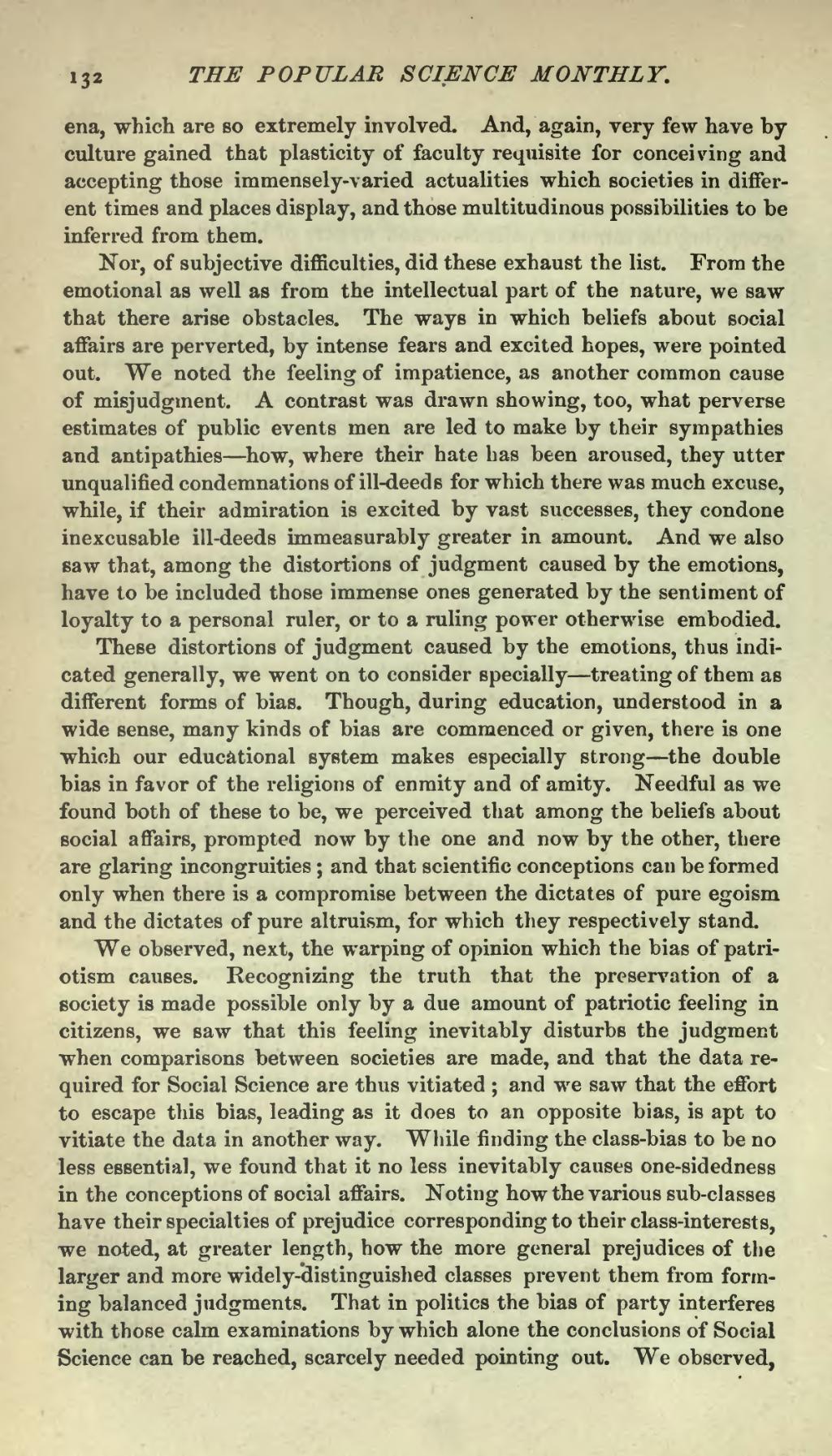ena, which are so extremely involved. And, again, very few have by culture gained that plasticity of faculty requisite for conceiving and accepting those immensely-varied actualities which societies in different times and places display, and those multitudinous possibilities to be inferred from them.
Nor, of subjective difficulties, did these exhaust the list. From the emotional as well as from the intellectual part of the nature, we saw that there arise obstacles. The ways in which beliefs about social affairs are perverted, by intense fears and excited hopes, were pointed out. We noted the feeling of impatience, as another common cause of misjudgment. A contrast was drawn showing, too, what perverse estimates of public events men are led to make by their sympathies and antipathies—how, where their hate has been aroused, they utter unqualified condemnations of ill-deeds for which there was much excuse, while, if their admiration is excited by vast successes, they condone inexcusable ill-deeds immeasurably greater in amount. And we also saw that, among the distortions of judgment caused by the emotions, have to be included those immense ones generated by the sentiment of loyalty to a personal ruler, or to a ruling power otherwise embodied.
These distortions of judgment caused by the emotions, thus indicated generally, we went on to consider specially—treating of them as different forms of bias. Though, during education, understood in a wide sense, many kinds of bias are commenced or given, there is one which our educational system makes especially strong—the double bias in favor of the religions of enmity and of amity. Needful as we found both of these to be, we perceived that among the beliefs about social affairs, prompted now by the one and now by the other, there are glaring incongruities; and that scientific conceptions can be formed only when there is a compromise between the dictates of pure egoism and the dictates of pure altruism, for which they respectively stand.
We observed, next, the warping of opinion which the bias of patriotism causes. Recognizing the truth that the preservation of a society is made possible only by a due amount of patriotic feeling in citizens, we saw that this feeling inevitably disturbs the judgment when comparisons between societies are made, and that the data required for Social Science are thus vitiated; and we saw that the effort to escape this bias, leading as it does to an opposite bias, is apt to vitiate the data in another way. While finding the class-bias to be no less essential, we found that it no less inevitably causes one-sidedness in the conceptions of social affairs. Noting how the various sub-classes have their specialties of prejudice corresponding to their class-interests, we noted, at greater length, how the more general prejudices of the larger and more widely-distinguished classes prevent them from forming balanced judgments. That in politics the bias of party interferes with those calm examinations by which alone the conclusions of Social Science can be reached, scarcely needed pointing out. We observed,
